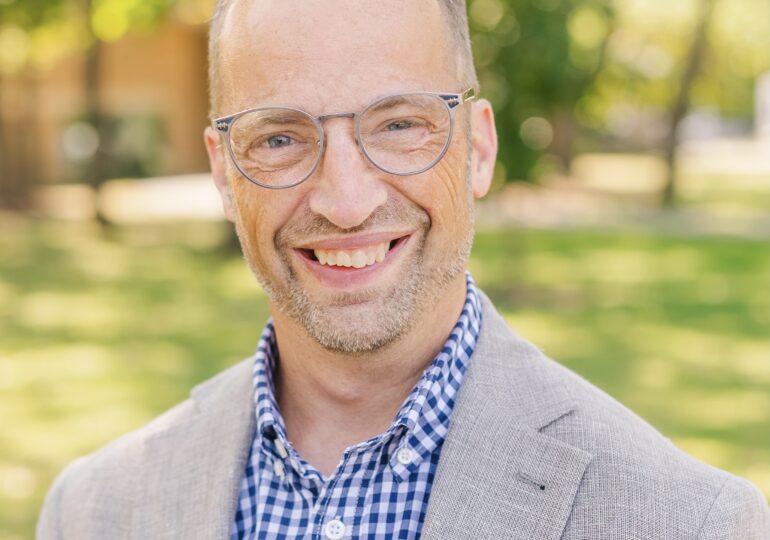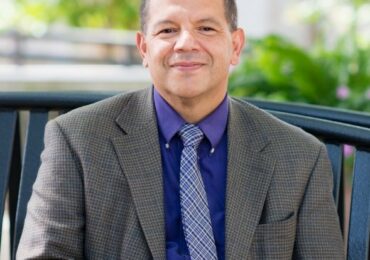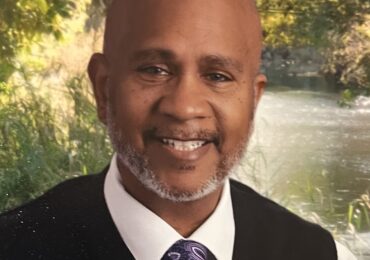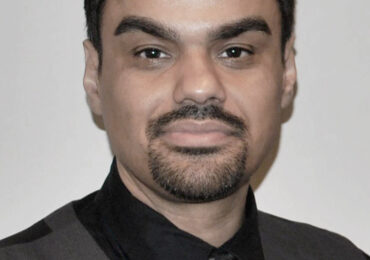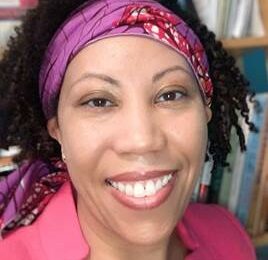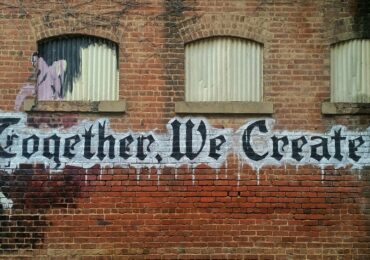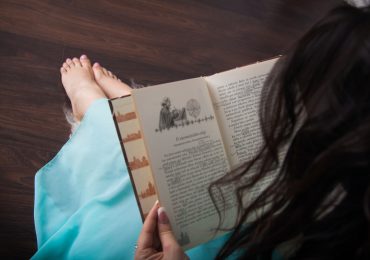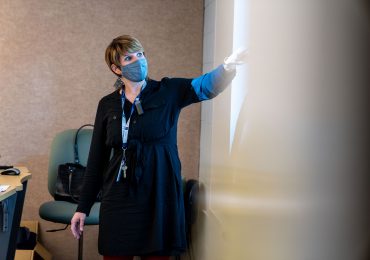On December 7, 2022, Dan Vander Plaats, Vice President of Advancement, Marketing, and Communications at Elim Christian Services, led a training session for Trinity faculty and staff on Ableism and Belonging. The workshop is one in a series presented by Mosaic, a Trinity initiative for diversity, equity, and inclusion. Mosaic is led by Dynitta Lieuwen, Special Assistant to the Provost and Chair of Staff Council, and Dr. La Tonia Winston, Director of Learning and Teaching Success and Assistant Professor of Education. The Center for Teaching and the Good Life is privileged to partner with Mosaic for this series. 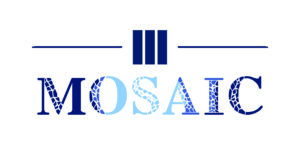 MP. Thank you very much for being here today, Dan. I really appreciated your presentation for staff and faculty and am grateful for the opportunity to talk with you more about your work. To start, could you please tell us a bit about how your background and training has contributed to your work in diversity, equity, and inclusion?
MP. Thank you very much for being here today, Dan. I really appreciated your presentation for staff and faculty and am grateful for the opportunity to talk with you more about your work. To start, could you please tell us a bit about how your background and training has contributed to your work in diversity, equity, and inclusion?
DVP. My background is probably what actually gave me the most affinity for work in diversity, equity, and inclusion, and that is probably immediately obvious when you listen to me speak. I have a speech disorder, and that disorder is a result of damage to a nerve cluster at the base of my brain which has paralyzed my vocal cords, partially paralyzed my tongue, and forces me to form my words using my lips and teeth. So, I have a very immediately obvious disability that people encounter when they first meet me. And that has led to a perception, on my part, of mistreatment because of that disability, treatment that I maybe didn’t quite fit in, at least initially, sometimes an incorrect perception that there was something more significantly wrong with me, perhaps intellectually or cognitively, in addition to my speech impairment. And that made me very sensitive, first of all, to how I was perceived in the world. Over a long period of time, that has also made me more and more sensitive to how other people with disabilities are perceived in the world.
Over the last several years, it’s made me more sensitive to how people who are also historically marginalized are treated in our world and left outside the community, rather than being welcomed, and belonging, in the community. And that’s what has given me a passion for diversity, equity, and inclusion work, but also a discomfort with it, because I come from a faith tradition of Evangelical Christianity that sometimes has proposed different ways of thinking about disability or about differences that haven’t always been healthy. These maybe don’t need to be dismantled, but they need to be adjusted. And that’s where I think I’m called to work in DEI, in adjusting how we perceive, perhaps, the “threat” of DEI work, but also how we perceive the differences of others and how they ought to belong in our communities.
MP. Thank you. Could I ask a follow-up question? I was wondering if you would want to tell us a bit about Elim Christian Services and your work there in relation to these broader trends.
DVP. Elim Christian Services was founded by people who felt that a Christian education was essential for covenant children, but specifically realized that there were no options for Christian education for people with disabilities. The presumption in those days—this was the 1940s—was that services for people with disabilities were optional at best and not necessary. What I love about Elim and its ministry is that its mere existence professes the value of people with disabilities in God’s Kingdom. And so, when we have a Christian school that serves over 200 children with disabilities, and a Christian adult day services program that serves over 200 adults with disabilities, and when we employ over 300 people to provide those services, what our community is telling those individuals, their families, and the world is that God created each one of us with a purpose in his Kingdom, and our job is to support people with disabilities in accomplishing the call that God has placed on their lives, just like other Christian schools and Christian colleges exist to equip their students to pursue God’s calling as well.
MP. Thank you. That’s beautiful. Shifting now to think about the idea of vocation, one of Trinity’s goals for all students, stated in our Foundations Learning Outcomes, is that they develop vocations that include and extend beyond career or work. Could you please tell us about a particular time in your life when you felt called by God into a new aspect of your vocation or a new way of thinking about your vocation?
DVP. It’s a great question. I began working at Elim because people referred me to Elim. It didn’t occur to me at the time, but soon afterward I realized that the reason I was referred to Elim is because, when they encountered me, they thought about people with disabilities and they presumed that the place in which I would be best served in terms of employment would be at a place that took care of people with disabilities, people like me. I think a much younger version of me would have bristled at that, but I grew passionate for the work that we were doing.
But that passion didn’t really coalesce until I had an experience about 14 years ago in which I was out in public at a restaurant with two of our adults, 2 fellow staff members, and another friend. I was in charge of the group, and we decided to go out for dinner. And as we sat down, we were introduced to our waitress, and she introduced herself, which is very typical, but then she asked each of us to introduce ourselves, which was different. And I prepared for that interaction as I normally do. I’m somewhat uncomfortable speaking to new people, a little bit at least. And so I have kind of a way of managing that, because certain consonants come out of my mouth differently and less obviously. So this person was going around the table having us introduce ourselves, and she came across our two adults. And our two adults have some apparent disabilities—social, behavioral, speech differences—that are a little more obvious. And the tone of our waitress changed slightly, from one who is talking to a peer to somebody who is being very nice and sweet to someone, her head cocked to the side, and so on. And I thought at the moment, well, that’s very nice of her, she’s being engaging with our adults. And then she turned to me and I said hi, I’m Dan and thought I was safe with that, but I realized that her tone toward me was the same as it was toward our adults with disabilities. My initial reaction was, that’s awful, what’s wrong with her that she should make that assumption about me, doesn’t she know I’m going to be paying the bill at the end of this?
But upon further reflection, I realized that was not the main problem in that scenario. The main problem was that I expected that I was worthy of better treatment than were the adults that we served at Elim. And it was in that encounter that everything really coalesced, and the call that I have had the privilege of pursuing since then really kind of clarified that my job is to take the limited, low-impact disability that I have and leverage it so that other people with more significant disabilities can more and more belong to their communities and flourish in them.
So, that had answered the question that I had my entire life: dear Lord, why would you give me this disability? Just get rid of it. I know you can get rid of it. Get rid of it. And the answer that I feel has been coming to me is the disability is there so that you can lay down even some of the privilege, access, and power you have for the sake of others who have more significant disabilities so that they too can belong in a way that you’ve been privileged to belong.
MP. Thank you. I think you’re already answering the next question, but I’ll ask if there’s anything you want to add. How do you see your work in relation to diversity, equity, and inclusion as a joined with God’s work in the world?
DVP. I believe that God has completed his work, that God’s work was completed on the cross in Jesus Christ, and the job that we have is to more and more reveal his Kingdom on Earth, to bring it to bear on Earth as it is in heaven. And if we’re revealing that Kingdom, that changes our posture a little bit. We don’t need to, as Christians, feel pressure to make sure that we’re accomplishing what God has set out for us to do. Our job now is to let his justice and his love and his compassion flow through us so that others might also see his Kingdom revealed on this earth.
To bring that to bear on the presentation I just offered, where I see that being lived out in regards to disability is that God is calling us all to a gracious and generous application of justice, not one that feels like a negotiation or one that feels like a fight between one group and another, but one that says, in response to God’s call, how do you want me, Lord, to lay down the gifts that you have given to me so that others might experience and see the Kingdom at work in their lives the way that I’ve seen it at work in mine.
MP. The next question goes back to your presentation, as well, in thinking about it in relation to the Center for Teaching and the Good Life, which works with faculty and staff at Trinity. And this has to do with our idea of teaching. At the CTGL, we think of teaching as not just what happens in the classroom, but what happens in all our interactions with students, that everything that staff and faculty do in relation to students is teaching. So are there ways that you could suggest that Trinity staff and faculty could draw on what we learned from your presentation to apply to our work with students?
DVP. I’d have two encouragements about that. First, I would just encourage faculty and staff to approach students with a gracious inquisitiveness, a curiosity that desires to see the gifts of the students first and not focus first on the needs and accommodations that are required by the students. If we can start there, I think it changes the conversation quite a bit about what it means to students to feel like they belong at Trinity when they have disabilities.
A second encouragement I would have is that we, in all of our actions and words and chapels and classes, have to remind ourselves and each other of who we are in Christ and whose we are in Christ. I believe that none of us can say anything that’s more true about ourselves than what God says about us, that we are made by him, that we were made in his image, that we have a purpose, and that he has called each one of us to accomplish the good works prepared in advance for us to do. I just encourage staff and faculty to think about Ephesians 2:10, as I shared in the presentation, and put a student’s name in there. If I’m the student: Dan Vander Plaats is God’s handiwork, and Dan was created in Christ Jesus to do good works, which He prepared in advance for Dan specifically to do. If we can tell all of our students that, I believe they’ll feel like they belong, that this is a place that wants the best for them.
MP. Thank you, Finally, I’d like to ask another question that we’re asking regularly at the Center for Teaching and the Good Life. From the perspective of your work and particularly your presentation today, how would you address the question, How can our vision of vocation and the good life be accessible for all persons?
DVP. I think it goes back to that gracious inquisitiveness again. I believe that the reality of disability is that even using that word—which is a necessary word, a helpful word—but it starts the conversation with needs and challenges and obstacles and demands and requirements. And that always enters us immediately into this kind of forced negotiation mode. What starting that conversation there does is that it overlooks the gifts and the opportunities that might be available to us if we started to see people first in terms of what they have to offer to our communities, what we’re missing when they’re not part of our communities. For instance, a person with a disability and the needs that sometimes accompany that disability requires time, but so does witnessing the gifts that they have to offer.
That also requires time. But in offering that time, we start to realize that the demands that we place on ourselves and on our time are perhaps unrealistic, perhaps unhealthy, perhaps not glorifying to God. And so perhaps taking that time isn’t about fixing something for that person with disabilities, but is actually about fixing something that’s off kilter in us.
So I think that vocation and the good life can be available to all persons, regardless of disability, if we start by talking about the gifts that someone has to offer and we reframe the discussion from challenges to opportunities.
Recommended reading from Dan Vander Plaats:
- The Wheaton Center for Faith and Disability is the home of The 5 Stages and resources related to the 10 Dimensions of Belonging (by Dr. Erik Carter). The 5 Stages is available in 15 different languages. We are looking for assistance translating it into: Japanese, Swahili, Yoruba, Fula, Quecha, Portuguese, Ukrainian, or Arabic. If anyone is able to assist with a translation, please contact dan.vanderplaats@elimcs.org.
- Dr. Brian Brock wrote Disability: Living Into the Diversity of Christ’s Body.
- Kosuke Koyama wrote Three Mile an Hour God
- Dr. John Swinton wrote Becoming Friends of Time
- Dr. Kevin Timpe recorded a video about Disability in Heaven
- Emily Ladau wrote Demystifying Disability
- Dan Vander Plaats wrote a short booklet called Changing Attitudes about Disability and assisted in editing a book called Everybody Belongs, Serving Together
- Dr. Lamar Hardwick wrote Disability and the Church
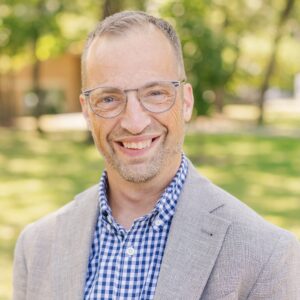
Dan Vander Plaats is the Vice President of Advancement, Marketing, and Communications at Elim Christian Services, a Christian disability ministry based in Crestwood, Illinois. Dan serves on the advisory committee for a bi-denominational Disability Concerns committee. In 2009, he developed “The 5 Stages: Changing Attitudes” to help churches and individuals assess and change their attitudes toward people with disabilities, and he’s the author of Changing Attitudes about Disability and a co-editor of Everybody Belongs, Serving Together: Inclusive Church Ministry with People with Disabilities. He is married to Denise (Hiemstra) and is father to Ben and Emma. Emma is currently a Trinity student.


